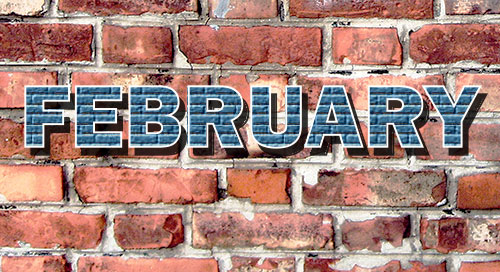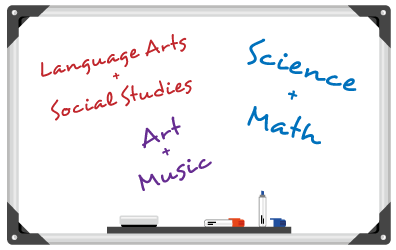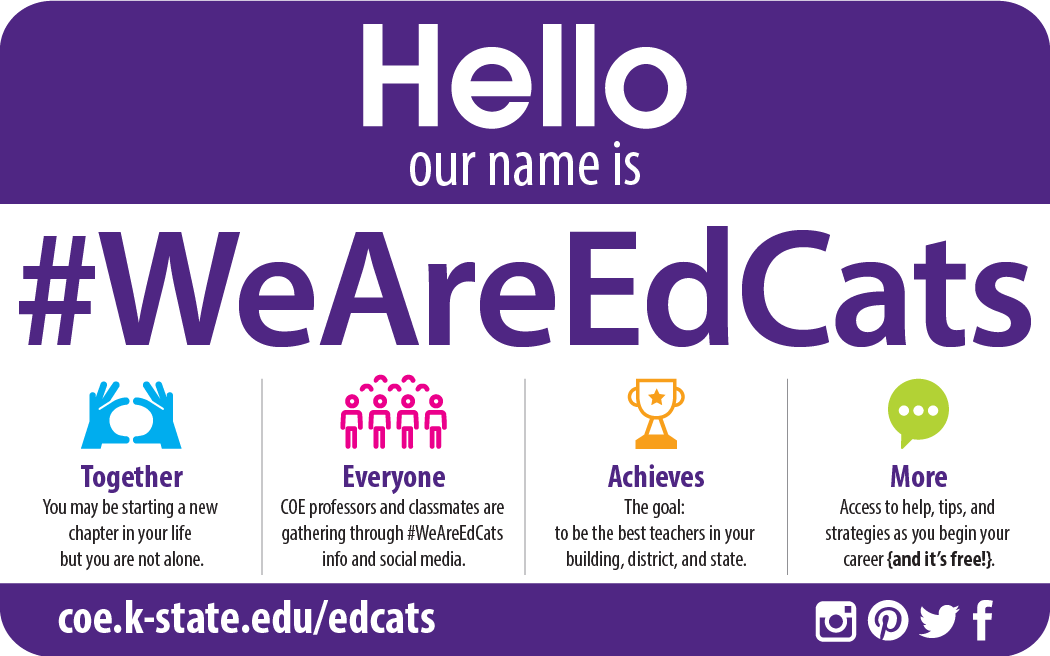Lori Goodson, Editor
Mary Hammel, Technical Editor
Category: February 2017
Here’s How to Break Down That February Wall
 In most teacher circles, it’s called The Wall. It’s the month of February, and for new teachers, it can be especially challenging.
In most teacher circles, it’s called The Wall. It’s the month of February, and for new teachers, it can be especially challenging.
Throughout the school year, we teachers go through cycles – the excitement of a new school year, back-to-school night, carnivals, book fairs, the first Parent/Teacher conferences, football season, Homecoming and other fall events, followed by winter break, and then kicking off a new semester. It’s like a rollercoaster through the various events.
Then comes February – and those celebrated times are all in the past. February is that slow, shaky uphill portion of your rollercoaster ride. Elementary students’ thrills of discovering a new classroom, a new teacher, and new procedures have waned. There’s no break in sight – spring break, prom, end-of-year celebrations, graduation – they can seem like light years away. Plus, nature seems to be working against us, as well. It’s dark when we leave in the morning, it’s dark when we return home. And the drive in either direction can mean a few extra minutes scraping ice or brushing snow off our windshields. It’s times like these when we start rooting for a snow day!
Veteran teachers will tell you that February is one of those months you have to push through – as you and your students mark off the days on the calendar (well, the students who are old enough to READ a calendar).
It can be especially difficult for new teachers who haven’t hit The Wall before. So what do you do to re-energize yourself AND your students? Consider some of these ideas:
- Create a special project just for the month of February – a poetry slam, a creative science project, or an informal art show, to name a few.
- Celebrate with February Friday Fests – special activities (large or small) that are only for Fridays in February. It can be a 15-minute storytelling time, a special word game, or a light-hearted math challenge.
- Set a specific goal for the month – whether it’s related to reading, geography, attendance, or whatever. Then provide a small acknowledgement of your class accomplishments.
- Generate a special February calendar marking the days with special events, activities, trivia, and key dates in history.
- Create a service-learning project that helps students reach out to others; create artwork for a nursing home, send get-well wishes to an ill school employee, etc.
- Add to your February routines by giving a writing prompt that connects somehow to the month or generate a list of Fun February Facts to share each day as a class starter.
- Take a few moments each day to enjoy the humor of your classroom. No matter what age you teach, you can find a goofy moment or a silly comment in every day you teach. Don’t lose sight of that.
- Secondary teachers: Don’t let the elementary teachers have all the fun with art projects. Let your middle schoolers and high school students step back into their childhoods and spend a few moment playing with just-for-fun activities.
Once you’ve successfully made it beyond The Wall, get ready for a hectic end to the rest of the school year. Spring break, sports events, testing, graduation – they’ll all be headed your way!
It’s Not Just You: We’ve All Made Silly Mistakes
 We asked your former professors: What’s one of the funniest/silliest mistakes you made as a first-year teacher?
We asked your former professors: What’s one of the funniest/silliest mistakes you made as a first-year teacher?
Dr. Sherri Martinie (Secondary Math) – “I hardly ever sat down. I stayed busy the whole day and even often ate lunch on the go. One day I was opening a pull-top can of tuna walking down the hallway and sliced my thumb. I had to leave school and have someone take me to get stiches! Lots of people teased me about it. I learned that I needed to stop, sit down, relax and enjoy a 20-minute lunch! My well being depended on it!”
Dr. Sally Yahnke (Family and Consumer Sciences) – “I’m not sure if it was silly or funny, but I was embarrassed and uncomfortable. I had a class of 18-year-old boys, and I taught them human sexuality. I was 22! At one point in the conversation we were talking about male anatomy, and I finally said, “I’m guessing you know more about this than I do!”
Dr. Tom Vontz (Elementary Social Studies) – “I left my barn door open after lunch.”
Dr. Phillip Payne (Music Education) – “Most of these are really inside jokes among our staff! We still have a great time with them… while this is not silly, the moral of the story is enjoy every moment and don’t take yourself too seriously.”
Assessment: You’ve Got This!
 It’s nearly time for assessments, so we’re offering some tips to help you make the most of it!
It’s nearly time for assessments, so we’re offering some tips to help you make the most of it!
- Let your students’ parents know about the approaching assessments.
- Give students and parents an idea of what the assessments will cover.
- Remind your students that they’re prepared for the assessments.
- Encourage students to eat well – especially breakfast – before a testing day.
- Have students drinking adequate amounts of water.
- Encourage them to do their best – and be proud of them when they do.
- Know that some students are taking tests in more than one content area, so understand if they’re especially stressed.
- If your students are preparing for tests, try to balance that with enjoyable student-focused activities.
- Try not to stress over these assessments; you’ve been preparing your students throughout the year with all your engaging activities and assignments.
- Smile. Your calmness and confidence will carry over to your students.
- And, just to balance things a bit, check out this article on creative teaching activities that DON’T involve filling in bubble answer sheets: Bubble Test Rebellion.
In the Classroom: Courtney MacCallum

Courtney MacCallum, a 2014 KSU graduate, is in her second year as a Special Education-Interrelated Resource Room teacher with the Blue Valley School District, and she was recently recognized as a 2017 Horizon Award winner. We visited with her about her professional journey.
What do you enjoy most about teaching?
“I am extremely fortunate to be surrounded by a group of very supportive, friendly and professional coworkers that I refer to as my teammates. They are fun to work with and have made my transition to teaching easy. To see a student’s face light up after solving a problem is thrilling. Having the ability to turn a student’s day around and make them feel proud, is what I strive to do each and every day I walk into the classroom. Above all, knowing that I have the power to make a difference is what I enjoy most about teaching.”
In what ways do you find the second year of teaching easier than the first?
“In all honesty, I feel that my second year of teaching has brought on different challenges than year one. Yes, year one jitters aren’t as prevalent in year two, but there are times when I’m not totally comfortable with my own decisions. I continually reach out to my team for advice on various situations. I believe it doesn’t matter if it’s year one or year 20, no two years will be the same and the only dumb question is the question not asked.”
What are some specific ways you believe KSU helped prepare you for your new career?
“I am grateful for the excellent education I received at KSU…. KSU helped me prepare for my career in so many positive ways. Having professors that care and want their students to succeed formed the base of my teaching career. Their passion for teaching was contagious. I gained new insight in each course I took and valued any feedback that would help me grow as a young educator. The abundant amount of resources that the College of Education provides is extremely beneficial. I can’t thank KSU enough for providing me the right tools, knowledge, and confidence to be the teacher I always thought I could be.”
What suggestions or encouragement can you offer new teachers?
“Do your best. Be proud of the profession you have chosen. Have faith in your students and help them trust you. When trust is built, learning will begin. Have confidence in your skills and believe that you will make a difference in a child’s life.”
Other thoughts?
“Go State!”
Try Teaming Up for Some Teaching Fun
 Some of your former secondary professors provided suggestions on content areas that would connect well with their content areas. Here’s what they had to say:
Some of your former secondary professors provided suggestions on content areas that would connect well with their content areas. Here’s what they had to say:
Cyndi Kuhn (Technology) – “Art and music.”
Dr. Brad Burenheide (Secondary Social Studies) – “Language arts/social studies is a natural fit!”
Dr. Sherri Martinie (Secondary Math) – “Science.”
Dr. Vicki Sherbert (Secondary English/Language Arts, Speech/Theatre, Journalism) – “English/Language Arts, Speech/Theatre, and Journalism present wonderful opportunities to collaborate in all content areas. Often there are topics covered in Social Studies classes to which literary works can be paired so that students are immersed in stories that bring historical events to life. There are also more and more non-fiction texts that can be read in the ELA classroom that support science topics and inquiry processes.”
Dr. Phillip Payne (Music Education) – “ All the subjects… specifically – Visual Art, History, Language Arts, Math. These all allow for great integration projects within courses.”
Dr. Tonnie Martinez (Secondary Language Arts) – “American Literature and American History; World History and World Literature.”
Dr. Sally Yahnke (Family and Consumer Sciences) – “I would encourage my students to collaborate with as many content areas as possible. I think supporting the content areas through family and consumer sciences is important for students to realize the relevance of the core classes in everyday life. Math just doesn’t happen in the math room or science in the science lab, but it is incorporated into what we do on a day-to-day basis. I think by working together, we can all help students succeed.”
Talk to Me! Please?
![]() Do you have a question about classroom procedures? Or a suggestion for a topic we should address in Before the Bell? Want to add your name to our mailing list? Or provide a different email for our mailing list? Or, if you’re in your first year of teaching, send us a photo of you at work in your classroom!
Do you have a question about classroom procedures? Or a suggestion for a topic we should address in Before the Bell? Want to add your name to our mailing list? Or provide a different email for our mailing list? Or, if you’re in your first year of teaching, send us a photo of you at work in your classroom!
Early-career teachers, feel free to jump in and offer suggestions to those who are following your career choice!
We’d love to hear from you, so please email us at lagoodson@k-state.edu.
Go, COE Cats!
#WeAreEdCats: Check It Out
 Have you checked this out yet? Join the fun today!
Have you checked this out yet? Join the fun today!
Dr. Tonnie Martinez and others are leading an effort to help beginning teachers like you thrive as you start your career! Check out #WeAreEdCats for teaching tips and to stay in touch with the COE! Check out the website at coe.k-state.edu/edcats!
In Our Next Issue…
 Spring is in the air! Well, in between snowflakes–but we’re getting close!
Spring is in the air! Well, in between snowflakes–but we’re getting close!
And you are SO close to finishing your first (or beyond!) year as a classroom teacher! With that in mind, we’re going to provide some information that should help you have an amazing finish to your hear. We’re going to focus on the following in our March issue:
- Assessments – The Sequel
- Spring Break Recharging
- Purple Possibilities